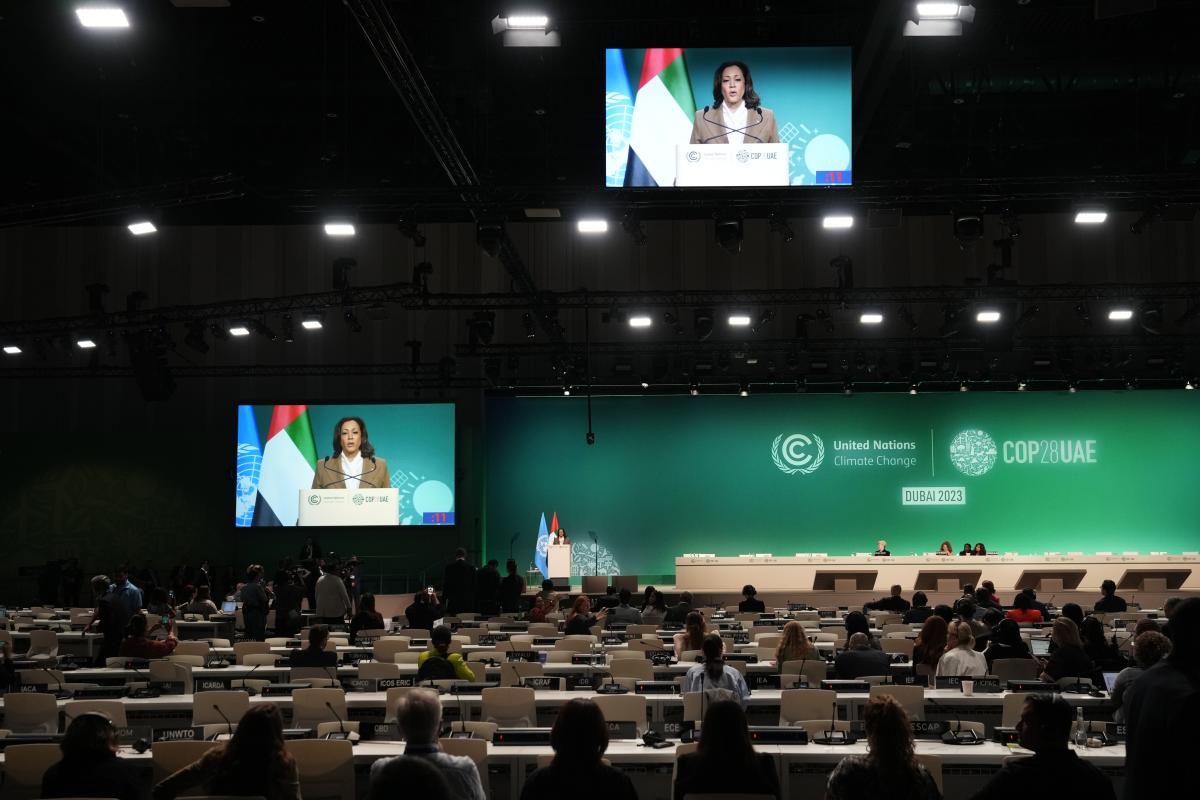While filling in for President Joe Biden, Vice President Kamala Harris flew to Dubai in the Middle East to address two long-standing challenges: climate change and the Israeli-Palestinian conflict, crossing political crosscurrents amid the nearing 2024 presidential race.
Harris arrived in Dubai for barely 24 hours, spending more time traveling to the United Arab Emirates and back to Washington. On her visit to Dubai for the U.N. climate conference, Harris was missing from the room when “her excellency Kamala Harris” had been scheduled to give a speech. She later resurfaced for a quick conversation, focusing on resolving the Israel-Hamas conflict, and heading out for back-to-back meetings with Arab leaders due to escalating Israeli attacks after a temporary cease-fire.
The complexities hovering around Harris’ tumultuous Dubai trip highlight the issues the Biden administration needs to address regarding economic reliance on renewable energy and sensitive matters concerning global warming and geopolitical conflicts. As divisive issues linger, Harris, serving as the face for Biden’s campaign among young voters, acknowledged the need for increased efforts to diminish fossil fuels’ impact on global warming, pledging a $3 billion contribution to help counter climate change.
The Israel-Hamas conflict has further revealed the divide within the Democratic Party in supporting Israel and the Palestinian civilians. Harris, although reiterating unwavering support for Israel, expressed concerns about the level of civilian suffering in Palestine during her discussions with Arab leaders.
Harris’ engagement in Dubai was a primary effort within a larger U.S. commitment to helping stabilize post-war Gaza. As she headed back to Washington, Harris followed up with a phone call to both Israeli President Isaac Herzog and Mahmoud Abbas, the head of the Palestinian Authority, expressing concerns and showing support for Palestinians’ rights. Additionally, the Vice President’s National Security Adviser, Phil Gordon, remained in Dubai and planned to further engage in discussions in Israel and the West Bank.
Overall, Harris’ focus on addressing multi-faceted challenges during her trip to Dubai exemplifies the complexities and tensions marking the Biden administration’s foreign policy. As the 2024 presidential race beckons, Harris’ role in addressing global and regional quaissues with the Middle East underlines the need for strategic policy making in amidst a tense political climate.


